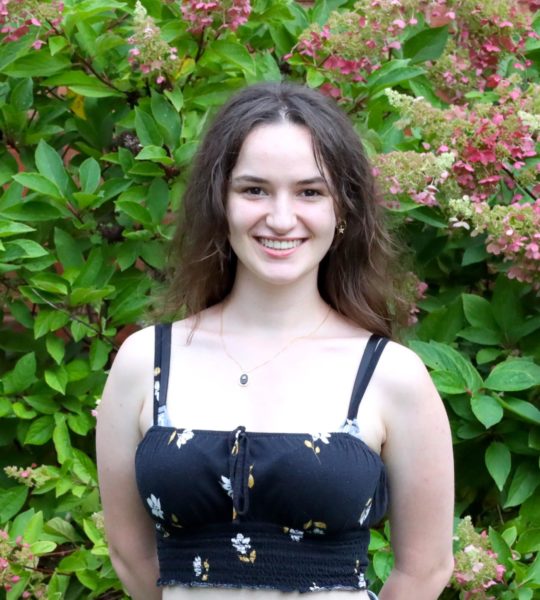Shaker Heights looks for academic institutions to aid in compost expansion initiative
April 21, 2023
In the past decade, Ohio has risen in the ranks to become one of the best states for composting in the country, boasting the highest number of composting facilities of any state. However, major landfills here are still seeing over one million pounds of food waste per day entering their facilities, accounting for the highest proportion of landfill material. Even with our state’s high-ranking status, cities all across Northeast Ohio are working to further improve their composting efforts.
Rust Belt Riders (RBR), founded in 2014, is a company that offers various recycling and composting solutions across Northeast Ohio. Additionally, they work with hundreds of businesses to help reduce their food waste, leading to seven million pounds of food waste being diverted from landfills last year alone. However, Daniel Brown, the co-founder of RBR, admits that some of their biggest limitations stem from “a mismatch between the interest in [their] services and the physical infrastructure that exists to process this material.” A logical next step would be to work with a city to try to alleviate this roadblock.
Michael Peters, the director of sustainability in Shaker Heights, is working with RBR on a pilot program to expand accessibility to composting in the city.
Peters became the sustainability consultant of Shaker Heights in 2019, where he first tasked himself with LEED-certifying (Leadership in Energy and Environmental Design) the city. This helped him and the sustainability committee understand what the city was doing well—of which there were many things, as Shaker Heights as a whole was certified at “Gold” level—and that the city could considerably improve in how it manages waste.
“Being a relatively small city, we chose to focus on the areas where we could have the biggest impact, and since roughly 30% of municipal waste is food waste, that became a priority,” explained Peters.
It was then that they began working with RBR to expand their program, further expanding the access to compost drop-off sites. Shaker Heights soon became the first city within the jurisdiction of RBR to pilot their now widely-offered home pick-up program. Through their work together, Shaker Heights alone was able to divert nearly 300 tons of food waste from entering landfills. Now, Shaker Heights and RBR are collaborating to try to make composting accessible city-wide.
“The ultimate goal is to have citywide food waste diversion through programs like composting and we want to ensure that as many residents as possible have access to the program,” said Peters. “Earlier this year we submitted a proposal to the Cuyahoga County Solid Waste District for a Special Projects Grant, which is what is funding this pilot.”
To get this pilot off the ground, the Shaker Heights Sustainability Committee is looking for an academic partner to help them shape and evaluate the program that could help quantify the impact of their efforts. Currently, their biggest limitations in this city-wide expansion involve funding and quantifying their overall impact on food waste reduction, which is where an academic institution like Case Western Reserve University could come in to assist.
“The composting industry generally is working to quantify the economic and non-economic benefits of composting, and this data is critical to making the argument of why we should be investing in these programs,” explained Peters. “Academic institutions provide both the expertise on designing the pilots and programs but also the analysis on the data we collect. Having an independent expert review of the programs and results is important to establish the validity of the data and trust in the recommendations.”
Through the implementations of their efforts, Peters hopes to see reductions of overall food waste sent to the landfill and to adapt their composting program while they expand. He also hopes that residents become aware of the amount of food waste we create, elaborating, “We don’t see how many pounds of waste we recycle or send to landfill, but think of how impactful it would be if we did.”


